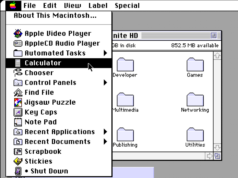
It’s now been a full week since those New Year’s Eve parties, and if you’re participating in Dry January, now is a great time to think about how well it’s working for you—if it’s working at all. Dry January definitely has its health benefits, but it can also backfire for some people. Let’s dig in to the pros and cons.
Quitting cold turkey isn’t always safe
For moderate drinkers, quitting alcohol is pretty straightforwardly beneficial (subject to caveats we’ll discuss shortly). But if you drink enough alcohol, often enough, going cold turkey can actually be dangerous.
Alcohol withdrawal can cause a variety of health issues, ranging from the inconvenient (headaches, mild diarrhea) to the severe (seizures, hallucinations, electrolyte imbalances that can affect your heart) to life-threatening.
Kelsey Rower, assistant director of nursing at Diamond Recovery Group, told me that recovery patients sometimes have more severe withdrawal symptoms than they expect because “they aren’t truthful about the amount they drink, or they may not realize themselves.” She recommends talking to a professional if you’re not sure whether going dry is going to be safe for you. A doctor or a recovery specialist can help, or consider calling something like the SAMHSA hotline.
Make sure to pay attention to your mental health
As long as your body is ready for it, cutting back on alcohol has well-understood health benefits. Your liver begins to repair damage, you sleep better, and you may even notice benefits to your gut health, immune system, and other bodily functions.
But the mental health benefits don’t always follow. If you just quit drinking without changing anything else about your life, you may find that you socialize less, or that you’re missing a coping strategy that you normally use to deal with stress. Rower says she’s seen TikToks where people decide a few days in that Dry January is too hard to be worth doing.
“It’s important to look at why you can’t go a month without drinking,” she says.
Journaling can be a way of asking yourself those questions and finding some answers. There are also “mindful drinking” apps that ask you to monitor your mood alongside your progress in making it through the month (or whatever time period you have chosen).
Try Dry, from Alcohol Change UK, is one app that many people find helpful; it will keep working beyond January if you’d like to continue cutting back, and you can still use it even if you drink occasionally.
What happens in February?
We’ve discussed before how Dry January is essentially an experiment to let you answer questions about your relationship with drinking. Am I sleeping better? Eating better? Saving money? The answers to those questions can help you make a plan going forward.
If you see Dry January as a standalone challenge, you may end up going right back to the same amount of drinking you did before. Many people drink extra on December 31 in anticipation of the sober month, and then have more drinks on February 1 in celebration of making it through–which aren’t exactly helpful in the goal of drinking less.
Fortunately, there are tools and strategies you can use to ride the momentum of Dry January into the rest of the year. For example, the CDC has a detailed quiz and planner you can use to evaluate your current level of drinking, and make a plan to drink less going forward.
Rower recommends that, after Dry January, you reflect on what you enjoyed about the month, and make room in your life for things other than drinking as the year continues. For example, picking up a new hobby (or revisiting an old one) can fill some of the space in your life formerly occupied by drinking.
She also suggests seeking out social support to continue staying sober (or drinking less, whatever that might look like for you). The world may move on from the monthly trend, but you may have a friend or family member who would be happy to continue with you.








